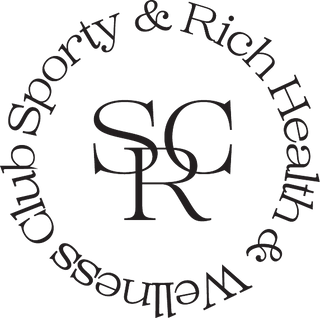
By: @dermahealthnutrition
Many food-related symptoms are mistaken for "allergies" when in fact they may be food intolerances. Food allergy and food intolerance are two distinct reactions with unique characteristics in terms of their underlying mechanisms. Accurately distinguishing between the two conditions is crucial for effective diagnosis and treatment, and ultimately for improving the wellbeing of those affected.
According to recent studies, 8% of children and 5% of adults worldwide suffer from food allergies. Common food allergens in children include egg, milk, gluten, soya and peanuts while common food allergens in adults include peanuts, fish, crab, gluten and meat.
Food allergies are immune-mediated reactions triggered by specific proteins in food, usually involving the production of immunoglobulin E (IgE) antibodies. When an allergenic protein is ingested, the immune system perceives it as a threat. Reactions typically occur within minutes to hours of ingesting the allergenic food! Clinically, food allergies manifest as a range of symptoms that can include skin reactions such as hives and itching, respiratory symptoms such as wheezing and shortness of breath, and in some cases gastrointestinal symptoms such as nausea, vomiting and diarrhoea. In severe cases, food allergies can lead to anaphylaxis, a potentially life-threatening condition that requires immediate medical attention.
A cross-allergy is relatively common in adults and can occur when proteins in certain foods are similar to proteins found in allergenic substances to which the individual is already sensitised: Some adults with latex allergies may also develop allergies to certain fruits, such as bananas, avocados and kiwis. Cross-allergies can also occur between shellfish allergens (shrimp, crab, etc.) and house dust mite allergens. People with a house dust mite allergy may experience allergic reactions when exposed to shellfish.
The diagnosis of food allergy involves a combination of methods, starting with a detailed medical history and assessment of symptoms. Skin prick tests and IgE blood tests are often used to further identify specific allergens. The gold standard for diagnosis is the oral food challenge, where a patient is exposed to suspected allergens under medical supervision.
The management of food allergy revolves around avoidance of the allergenic food. Patients with known food allergies are often prescribed epinephrine autoinjectors for severe allergic reactions. Allergen-specific immunotherapy may be considered, but is currently only an option for peanut allergy in children.
Unlike food allergies, food intolerances do not involve the immune system and are not mediated by IgE antibodies. Instead, they typically result from enzyme deficiencies (e.g. lactase deficiency) or sensitivity to specific food components (e.g. histamine or fructose intolerance). Symptoms of food intolerance tend to have a more gradual onset, occurring hours to days after ingestion of the offending food.
The clinical presentation of food intolerance primarily includes gastrointestinal symptoms such as flatulence, abdominal pain and diarrhoea. Non-specific symptoms such as headache and fatigue may also occur, but are less common.
The diagnosis of food intolerance also begins with a comprehensive medical history and assessment of symptoms. In cases where a specific intolerance is suspected, such as lactose intolerance, breath tests may be used to confirm the diagnosis. In rare cases, such as celiac disease, a biopsy may be required.
Managing food intolerances often involves dietary modifications, where individuals avoid the specific foods or components that trigger their symptoms. Enzyme replacement therapy, such as lactase supplements for lactose intolerance may be recommended. For symptomatic relief, antihistamines for histamine intolerance may be effective or helpful in alleviating symptoms.
Food allergies are usually diagnosed by allergologists (e.g. dermatologists), while food intolerances are usually diagnosed by gastroenterologists. See a specialist for an accurate diagnosis and appropriate treatment.
If you suspect you have a food allergy or food intolerance, write down exactly what happens after you eat the suspected food (including a detailed timeline of symptoms). Also note whether or not you can eat processed versions of the food. For example, soy milk vs. tofu; fresh tomatoes vs. pasta sauce; hazelnuts vs. chocolate spread.
References:
-Gargano D, Appanna R, Santonicola A, De Bartolomeis F, Stellato C, Cianferoni A, Casolaro V, Iovino P. Food Allergy and Intolerance: A Narrative Review on Nutritional Concerns. Nutrients. 2021 May 13;13(5):1638. doi: 10.3390/nu13051638. PMID: 34068047; PMCID: PMC8152468.
-Onyimba F, Crowe SE, Johnson S, Leung J. Food Allergies and Intolerances: A Clinical Approach to the Diagnosis and Management of Adverse Reactions to Food. Clin Gastroenterol Hepatol. 2021 Nov;19(11):2230-2240.e1. doi: 10.1016/j.cgh.2021.01.025. Epub 2021 Jan 22. PMID: 33493695.
-Tuck CJ, Biesiekierski JR, Schmid-Grendelmeier P, Pohl D. Food Intolerances. Nutrients. 2019 Jul 22;11(7):1684. doi: 10.3390/nu11071684. PMID: 31336652; PMCID: PMC6682924.
-Szilagyi A, Ishayek N. Lactose Intolerance, Dairy Avoidance, and Treatment Options. Nutrients. 2018 Dec 15;10(12):1994. doi: 10.3390/nu10121994. PMID: 30558337; PMCID: PMC6316316.















